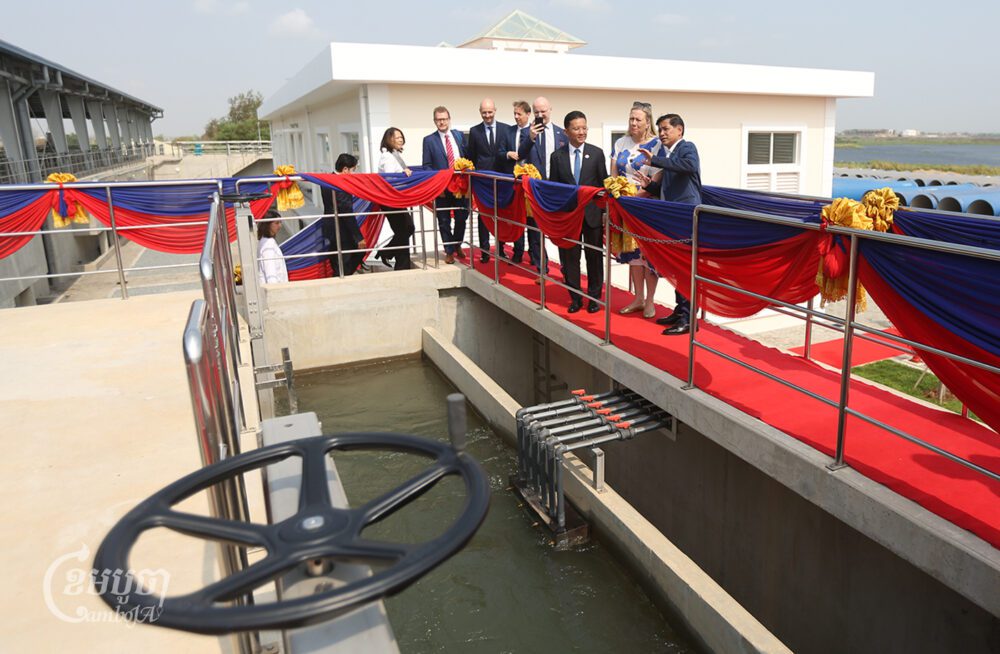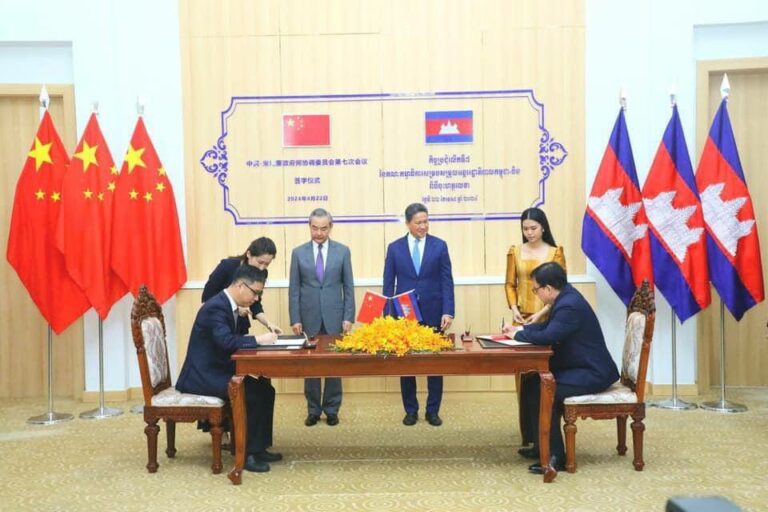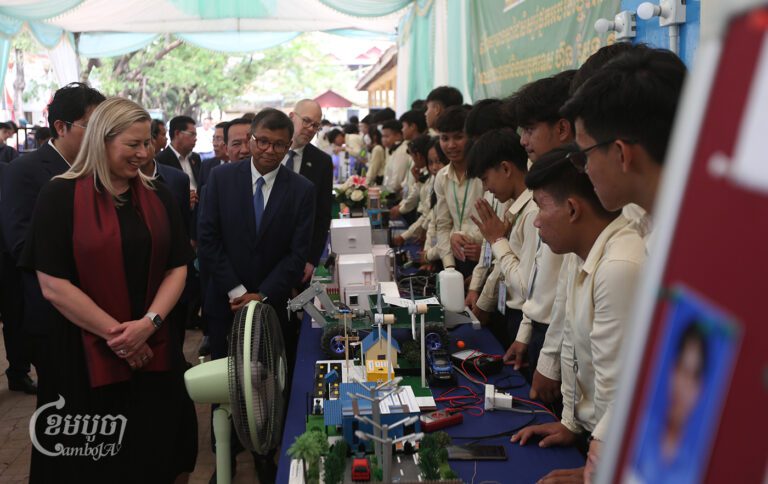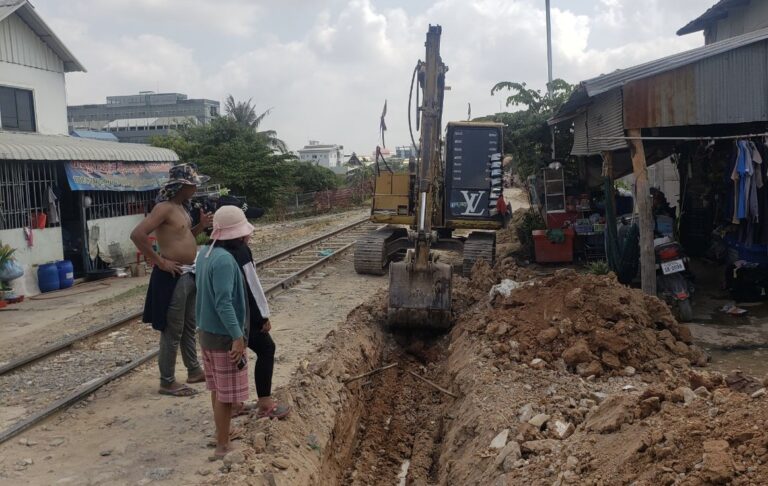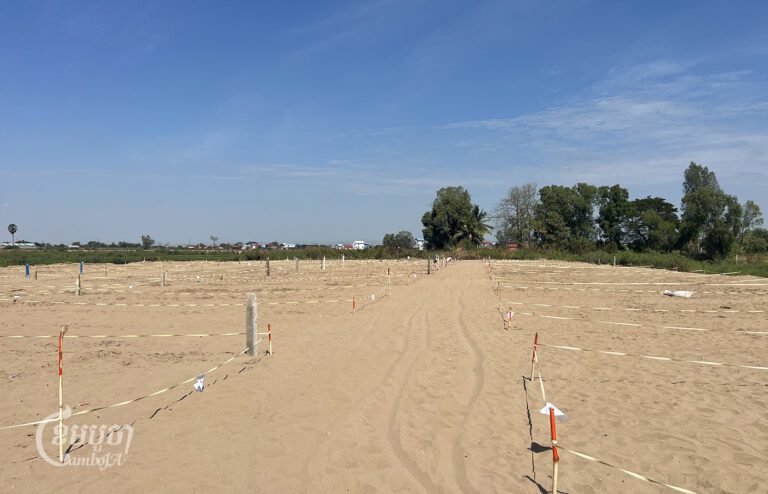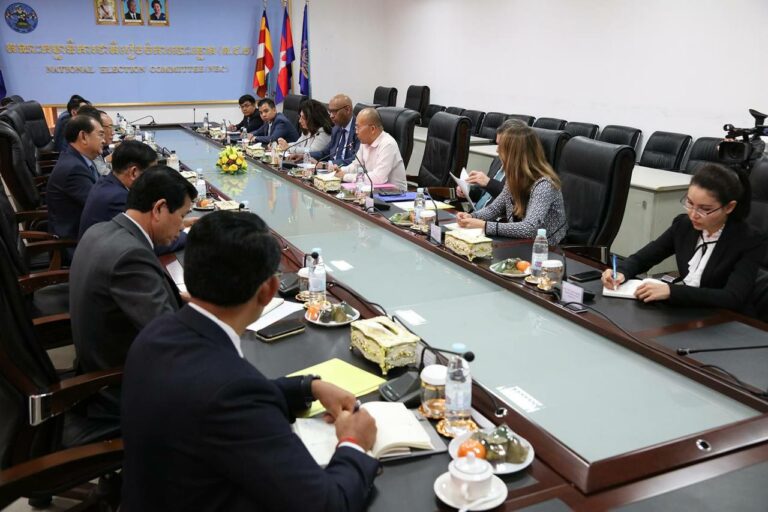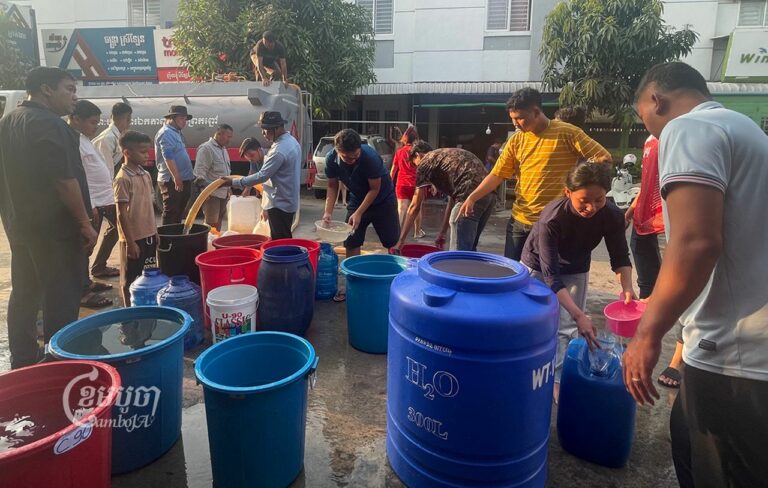The European Union has approved a $13 million grant for Cambodia to expand phase three of the Bakheng Water Treatment Plant and improve clean water access for over two million residents in Phnom Penh and Ta Khmao city.
The funding was made during a visit by European Commissioner for International Partnerships Jutta Urpilainen to the plant located in Phnom Penh’s Chroy Changvar district on Wednesday.
“The water treatment plant will facilitate access to clean water for over two million people, so my message to you is that we are on your side,” she said during a press conference.
Urpilainen said the total future investment for the clean water project is about 259 million euros ($283.4 million). This includes a 200 million euros ($218.7 million) loan from the French Development Agency and EU’s 12 million euros ($13 million). The investment for phases one and two amounted to 350 million euros.
“Access to clean water is a human right,” she said, adding that the EU is committed to ensure access to water and sanitation for up to 70 million people globally by 2027.
“We also support Cambodians who [currently] don’t have pipe water supply to have access to clean water. We can see that there is a clear connection between clean water and economic growth,” Urpilainen said.
Phase one and two of Bakheng Water Treatment Plant has a combined production capacity of 390,000 cubic meters of water per day. The project has contributed to 170,000 new connections to the water supply network, including disadvantaged households, and 25,000 connections to commercial establishments and factories.
Minister of Industry, Science, Technology and Innovation Hem Vanndy lauded the EU for its continued support via grant funding to help Cambodia meet its goal of clean water access by the end of 2025.
“The project is beginning, and as you have seen water pipes have just arrived and we will connect the water supply network according to our schedule. By the end of 2025, we will have no problem [accessing clean water],” he said.
Thanks to the EU’s support, there are 898 kilometers of connections, so hundreds of households are benefiting, Vanndy mentioned. The $13 million grant for clean water network expansion would help people with reduced income, like those living in the city outskirts.
Aside from the clean water project, the EU and Cambodian government launched four programs to promote sustainability and energy efficiency in the country, including a $53.1 million initiative to improve technical education on Tuesday.
Urpilainen, who was on a two-day visit to Cambodia, also finalized three other programs at the Ministry of Economy and Finance, which were funded by the EU and Germany. They comprise grants of $18.4 million for enhancing agricultural and food systems, $6.5 million for sustainable energy development, and a $7.6 million program focusing on trade and the private sector.
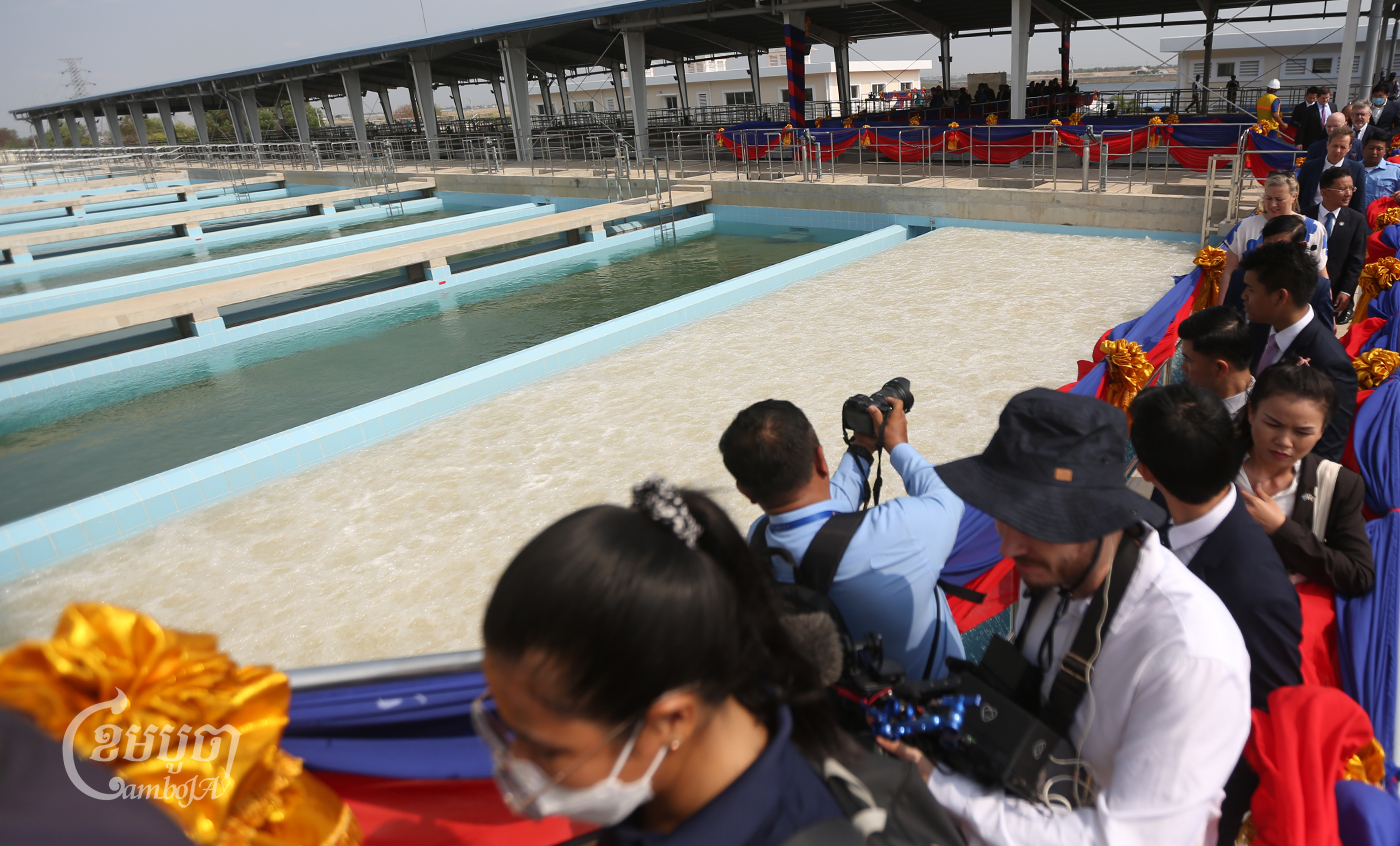
Meanwhile, People’s Center for Development and Peace president Yang Kim Eng said there are a few places in the city which remain challenging for people to access clean water, especially during the dry season as the water pressure is low.
“The health of citizens will be affected when they can’t access clean water, and also affect their right to state public services,” he said.
He believed that funding by the EU will address clean water shortages in Phnom Penh and surrounding areas of the city.
“We hope with the EU funding, we will have adequate water so there will be no worry compared to the past when water supply was low,” Kim Eng said.
Keo Nimol, a 39-year-old resident in Pur Senchey district, related her experience when there was a water shortage and could not access state-owned Phnom Penh Water Supply Authority’s (PPWSA) clean water network.
“We experienced a lot of challenges such as inadequate water for consumption during the dry season or when prices are high. Some days, there was no water at all,” Nimol said.
Previously, they had to rely on private water connections, which cost 3,500 riel per cubic meter, but now they pay 700 riel for clean water supply from PPWSA.
“For about 30 years, we didn’t have water supply from the state-owned company, but now we’re happy to have enough water for consumption,” Nimol said. Last February, PPWSA connected water pipes for 90 families who live along the railway line in Pur Senchey district.
PPWSA director Long Naro said phase three of the water treatment plant has a capacity of 195,000 cubic meters per day.
“There’s no water shortage this dry season with regards to PPWSA’s clean water supply network,” he said.
The current water production capacity is one million cubic meters per day. Daily water demand is about 860,000 cubic meters. Every year, the authority expands the water supply network to between 3,000 and 4,000 customers.


